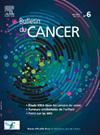Patient views on continued immune checkpoint inhibition following progression in advanced melanoma: A qualitative study
IF 1.1
4区 医学
Q4 ONCOLOGY
引用次数: 0
Abstract
Introduction
Immune checkpoint inhibition has revolutionized the management of metastatic melanoma, including in the final stages of disease progression: because it is well tolerated, some teams do not discontinue it in hopes of slowing disease progression. The risks are that treatment may be continued unnecessarily, causing side effects, and reduce access to specialist palliative care, in addition to increasing the cost of treatment.
Method
We explored the experiences of 10 patients in a university hospital with metastatic melanoma under continued immune checkpoint inhibitors combined with specialist palliative care. Our goal was to gain a better understanding of the advantages and disadvantages perceived by patients. The comprehensive interviews were analysed using a method inspired by grounded theory that met the COREQ international recommendation criteria.
Results
Receiving the information of disease progression, continued treatment and onset of palliative care impacts patients’ lives: from this point onwards, death becomes a reality and takes on the image of a sword of Damocles. The experience is anxiety-provoking because of the uncertainty of tomorrow, and painful because of the physical suffering and successive bereavements. However, far from causing depression and despair, joint oncology-palliative management is well accepted and helps to improve patients’ daily lives and well-being.
Conclusion
Our findings highlight patients’ ambivalence. On the one hand, they recount their experiences of suffering in connection with the disease and the confrontation with death, and on the other hand, their need to continue to live and to hope. Joint care provided by oncology and palliative care teams, symbolically representing hope and death, may mirror patients’ psychological mindset and provide just the support they need.
晚期黑色素瘤进展后患者对继续使用免疫检查点抑制剂的看法:一项定性研究。
导言:免疫检查点抑制剂彻底改变了转移性黑色素瘤的治疗方法,包括在疾病进展的最后阶段:由于其耐受性良好,一些团队不会停止治疗,希望能延缓疾病进展。这样做的风险在于,可能会不必要地继续治疗,从而导致副作用,并减少获得专科姑息治疗的机会,此外还会增加治疗费用:我们调查了一家大学医院的 10 名转移性黑色素瘤患者在继续接受免疫检查点抑制剂治疗的同时接受专科姑息治疗的经历。我们的目标是更好地了解患者感知到的利弊。我们采用了一种受基础理论启发、符合 COREQ 国际推荐标准的方法对综合访谈进行了分析:接收到疾病进展、继续治疗和开始姑息治疗的信息对患者的生活产生了影响:从这时起,死亡成为现实,并呈现出达摩克利斯之剑的形象。由于明天的不确定性,这种经历令人焦虑;由于身体上的痛苦和接二连三的丧亲之痛,这种经历令人痛苦。然而,肿瘤姑息治疗远未导致抑郁和绝望,而是被广泛接受,并有助于改善患者的日常生活和福祉:我们的研究结果凸显了患者的矛盾心理。一方面,他们讲述了与疾病相关的痛苦经历以及与死亡的对抗,另一方面,他们需要继续活下去并怀抱希望。象征着希望和死亡的肿瘤学和姑息治疗团队提供的联合护理可能会反映出患者的心理心态,并为他们提供所需的支持。
本文章由计算机程序翻译,如有差异,请以英文原文为准。
求助全文
约1分钟内获得全文
求助全文
来源期刊

Bulletin Du Cancer
医学-肿瘤学
CiteScore
1.90
自引率
16.70%
发文量
224
审稿时长
37 days
期刊介绍:
Without doubt, the ''Bulletin du Cancer'' is the French language publication of reference in the field of cancerology. Official organ of the French Society of Cancer, this journal covers all the information available, whether in the form of original articles or review articles, but also clinical cases and letters to the editor, including various disciplines as onco-hematology, solids tumors, medical oncology, pharmacology, epidemiology, biology as well as fundamental research in cancerology. The journal proposes a clinical and therapeutic approach of high scientific standard and regular updates in knowledge are thus made possible. Articles can be submitted in French or English.
 求助内容:
求助内容: 应助结果提醒方式:
应助结果提醒方式:


